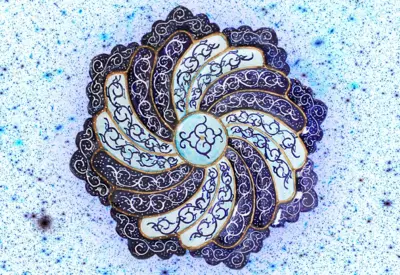It is widely held that mystical experiences have certain common qualities, such as ineffability and a sense of connection to a greater being, that point to a perennial philosophy underpinning otherwise diverse religious traditions. Philosopher Steven T. Katz argues that this is too simplistic: a closer look at accounts of mystical experience indicates that they are shaped by their cultural and religious context, as well as the conditions that govern what and how we are able to think.
From the late nineteenth century until the 1980s, the most common, widely accepted interpretation of mystical experience was that the ultimate experience was the same across all ¬religious traditions. William James characterized the mystical experience as transient; as ineffable, or defying expression; as noetic, or imparting a form of knowledge or insight; and as passive, in the sense that the experiencer perceives an absence of his own will, and may also perceive the presence of another, greater will. James also characterized such experience as creating a feeling of love and bliss.
What gives rise to the different schools of mystical teachings is the fact that the ultimate experience is ineffable, beyond language, and so when the individuals who have had this experience want to describe it and share it with others, they are forced to employ the existing language and metaphysical ideas they knew from their own religious communities, resulting in diverse mystical traditions. This view was endorsed by a long and distinguished line of scholars that includes James, Evelyn Underhill, Rudolf Otto, Ninian Smart, and more recently, William Wainwright. And it was shared by all those many advocates of the interpretation of mysticism as an undifferentiated philosophia perennis. Here, one thinks of scholars as different as Frithjof Schuon, Sayyed Hossein Nasr, Robert Forman, and most famously, Aldous Huxley.
___
There is no pure, unmediated, universal experience that transcends history, religion, and culture.
___
I want to insist that this form of interpretation is too simplistic. The mystical situation is more complex than usually appreciated. It involves not just (a) the content of the mystical experience and (b) the post-experiential description of it, but also (c) the deep question of what mystics bring to their experience. The mystic already, prior to his or her experience, belongs to a particular religious tradition, has knowledge of the relevant scriptures, and, almost always, has had a teacher from that distinctive tradition.
I suggest, instead, an alternative three-step model of how we should approach understanding and deconstructing mystical experience. The epistemological principle on which it is based – reflecting the diversity of the evidence supplied by the world's mystical teachings – is that there is no pure, unmediated, universal experience that transcends history, religion, and culture. Mystical experience is shaped by these factors too.
 SUGGESTED READING
The reality of the mystical experience
By Ricky Williamson
SUGGESTED READING
The reality of the mystical experience
By Ricky Williamson
My evidence for this judgment comes from four different sorts of reflection. The first is narrowly philosophical and emerges out of a consideration of the process of knowing, including mystical knowing. All knowledge – and here I explicitly include mystical knowledge – is subject to rules that make it possible. In order to decipher mystical experience, we must tie the experience to the conditions of having such an experience. For example, our minds, our consciousness, is not a tabula rasa (blank slate), but an active reality that provides such basic necessities as concepts of space, time and causality.





















Join the conversation